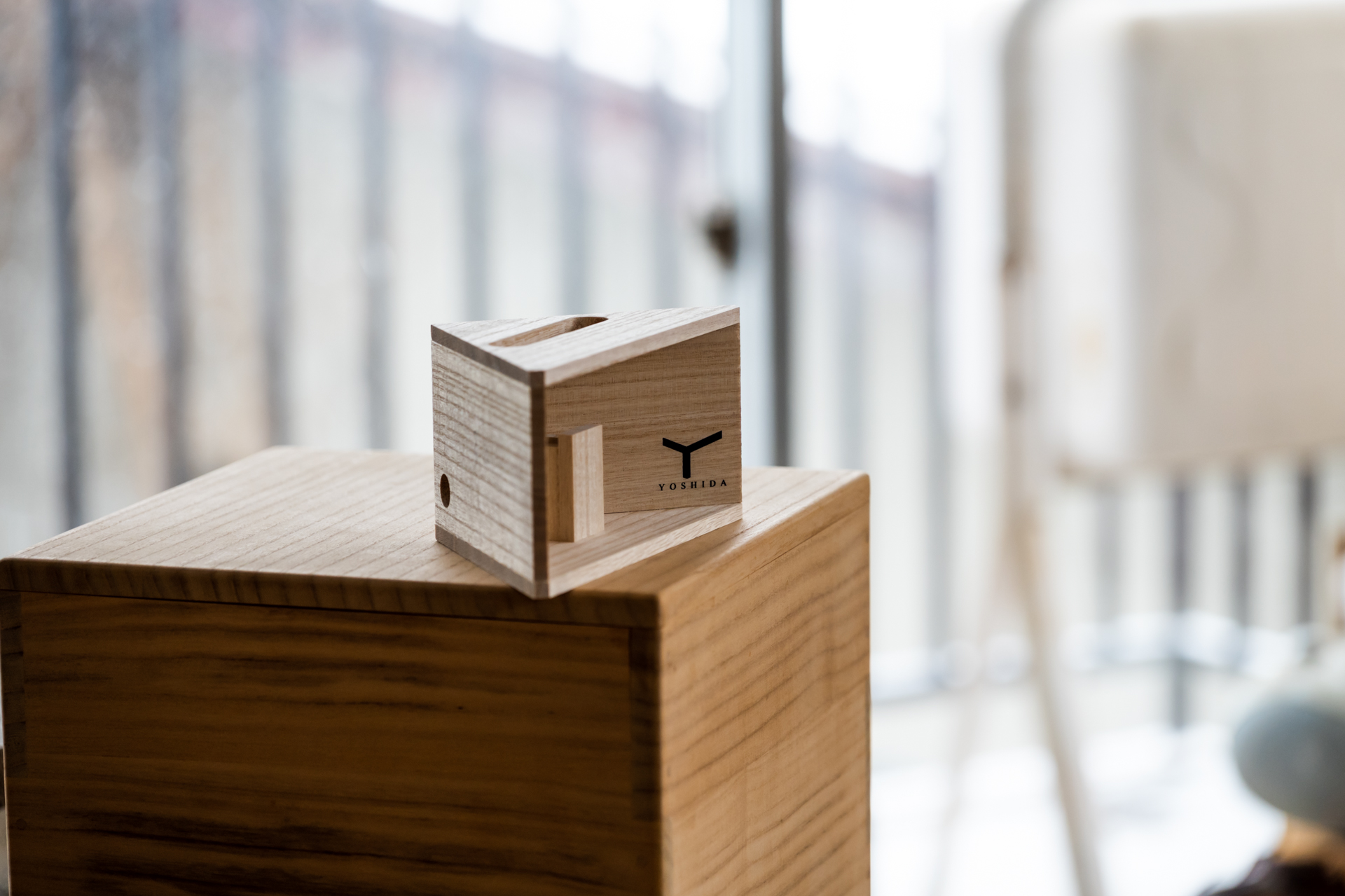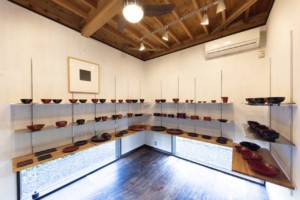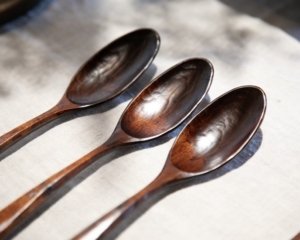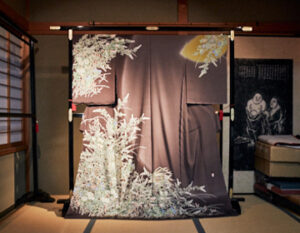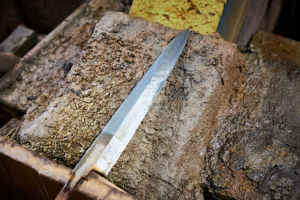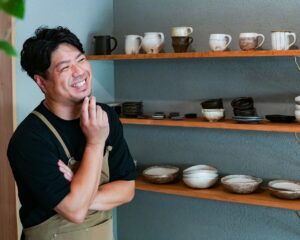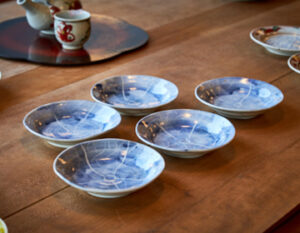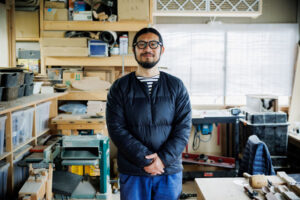Ltd. has been making paulownia boxes for three generations in Yamagata City, Yamagata Prefecture, Japan. 90 years of experience in the art of paulownia box making has enabled the company to produce a wide range of products, from traditional craft designs to modern lifestyle items. Wood, stone, glass. In this age of material diversification, the company is striving to expand the possibilities of paulownia products.
Making paulownia boxes that can be passed down from grandfather to grandson
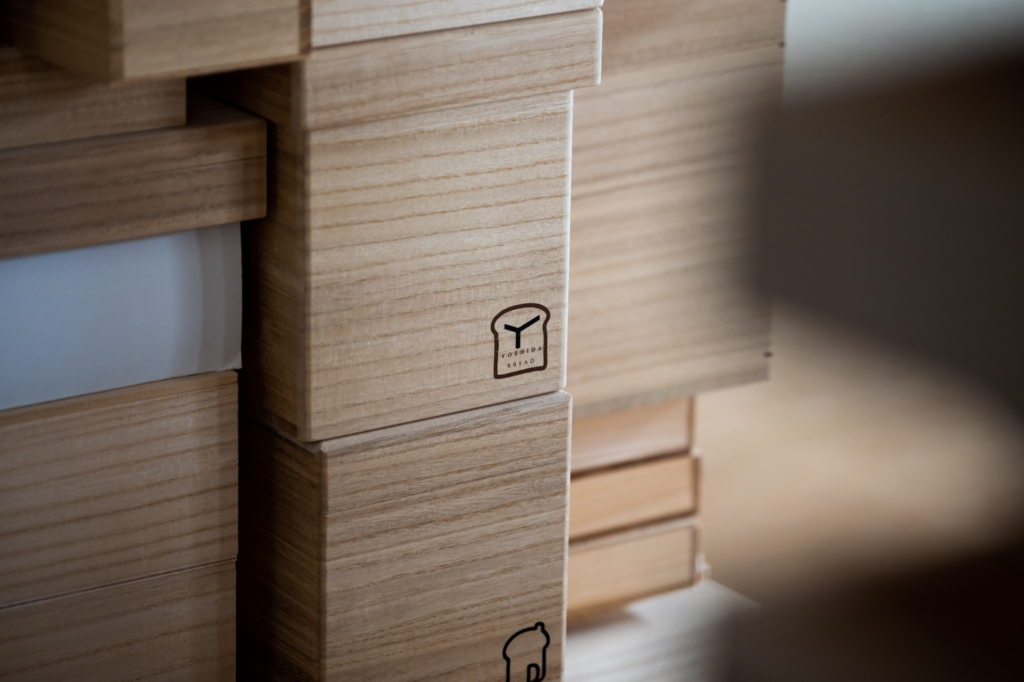
Yoshida Ltd. has a workshop in Gokamachi, Yamagata City, about a 10-minute walk from JR Yamagata Station. The company has been producing wooden boxes, especially paulownia boxes, for more than 90 years since its establishment. The word “paulownia box” may conjure up prestigious images of traditional crafts, but the paulownia boxes made by Yoshida Ltd. are different. They can respond to a wide range of customer needs, not only traditional gift boxes made with the finest craftsmanship, but also custom-made items that fit in with modern life, such as paulownia bread cases and smartphone speakers. We interviewed Mr. Nagayoshi Yoshida, the third generation of “YOSHIDA Co., Ltd.” who has been inventing a series of creative products that are not bound by the conventional image of paulownia boxes.
The change of food culture made him choose the path of paulownia box making.
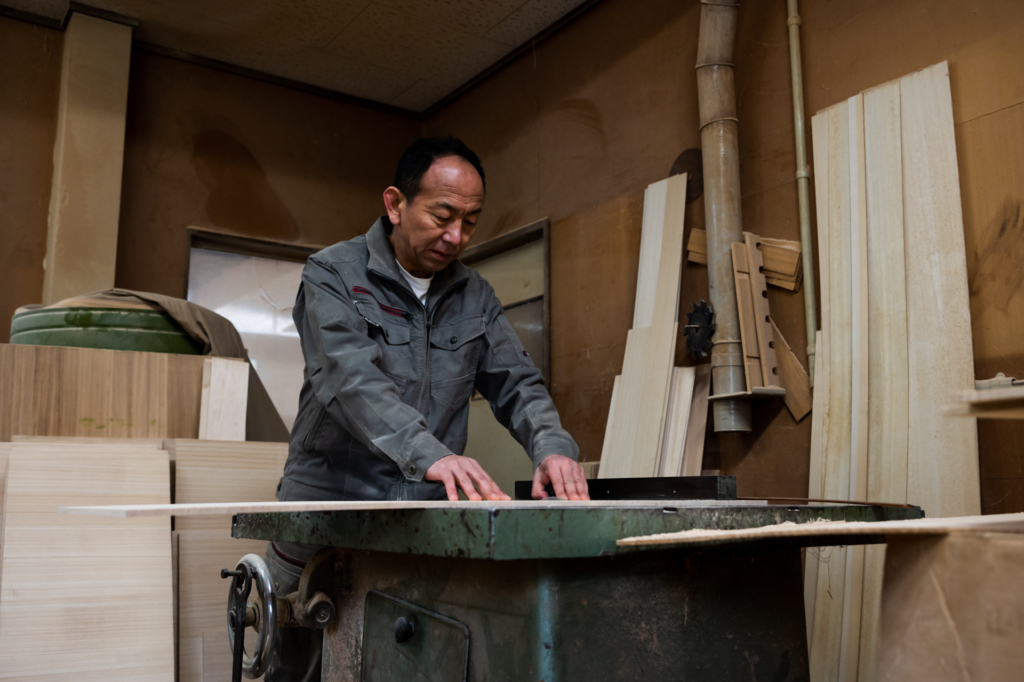
Mr. Yoshida’s grandfather, Chosuke Yoshida, started the production of paulownia boxes. Born in the Meiji era (1868-1912), Mr. Yoshida was originally a wooden craftsman who made tables and stacked boxes. However, as the style of eating gradually shifted from serving dishes to tables, the demand for serving dishes declined. He started making paulownia boxes using local paulownia wood.
The amount of ozen we make has decreased, so we started to make paulownia boxes when we were wondering what we should do. In the past, paulownia wood was harvested in Yamagata, and I was familiar with paulownia boxes as containers for storing important items,” says Mr. Yoshida.
The first generation, Chosuke Yoshida, began producing paulownia boxes in 1930. Later, his son, Choshiro, the second generation, started to produce paulownia boxes for local industries such as Yamagata cast iron, Yonezawa textiles, and cherries, while developing “Ecchu Toyama no Okiyaku” (medicine left in Ecchu Toyama) paulownia drawer boxes nationwide. The current representative, Mr. Nagayoshi, has been working as the third generation in the company since 1991. He has been developing not only traditional paulownia boxes but also a variety of products that fit into modern life.
His skills are so solid that the first generation, Chosuke, received the Yamagata City Technical Merit Award in 1980, the second generation, Choshiro, received the Yamagata City Technical Merit Award in 1993, and the Yamagata City Traditional Craft Industry Technology Merit Medal in 2020, while the third generation, Choyo, received the Grand Prix in 2019 in the Japanese Treasure JAPAN Grand Prix “Crafts and The third generation, Choyo, won the Grand Prix in 2019 in the Japanese Treasures JAPAN Grand Prix “Crafts and Sundry Goods Category” and the Yamagata City Medal of Technical Merit for Traditional Craft Industries in 2022.
Paulownia wood box suitable for long-term preservation of important items
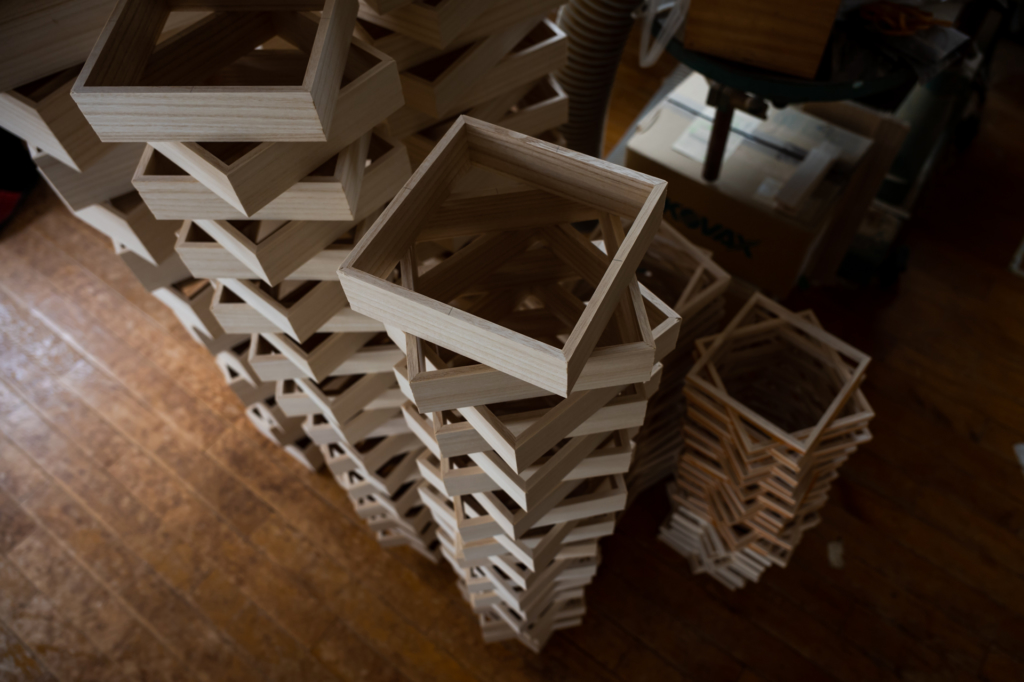
One of the characteristics of paulownia boxes is their humidity control properties. In Japan, where humidity is high, people have long stored important items in paulownia boxes. This is because the humidity inside a paulownia box never exceeds 70%, making it difficult for mold to grow. It is also said that fruits and other produce last longer. The same is true for medicines, and the fact that they can be stored away from humidity makes them suitable for medicine boxes. In the case of medicine sales in Ecchu-Toyama, the medicines were originally transported in paper bags, but the first generation created a medicine box from the scrap wood of paulownia geta, and the second generation perfected it as the “‘Ecchu-Toyama’s leftover medicine’ paulownia drawer box” due to its functional qualities.
Paulownia wood, which can be used from about 30 years old, is said to be better when grown in colder climates, as its grain is more compact. This may be one of the reasons why Yamagata paulownia boxes developed from local paulownia wood. However, paulownia wood also has its weak points. It is a soft wood that is easily scratched. For example, a paulownia box will chip if the corners are not removed when it is finished.
“Nevertheless, I believe that the possibilities of paulownia wood are endless, and the good thing about paulownia boxes is that they can protect a person’s most precious possessions and leave them to the next generation. That is why it is important to challenge new things while preserving tradition,” says Mr. Yoshida.
The original products born from this attitude have brought “YOSHIDA Ltd.” into the spotlight.
Put in pasta, bread, and red seal book.
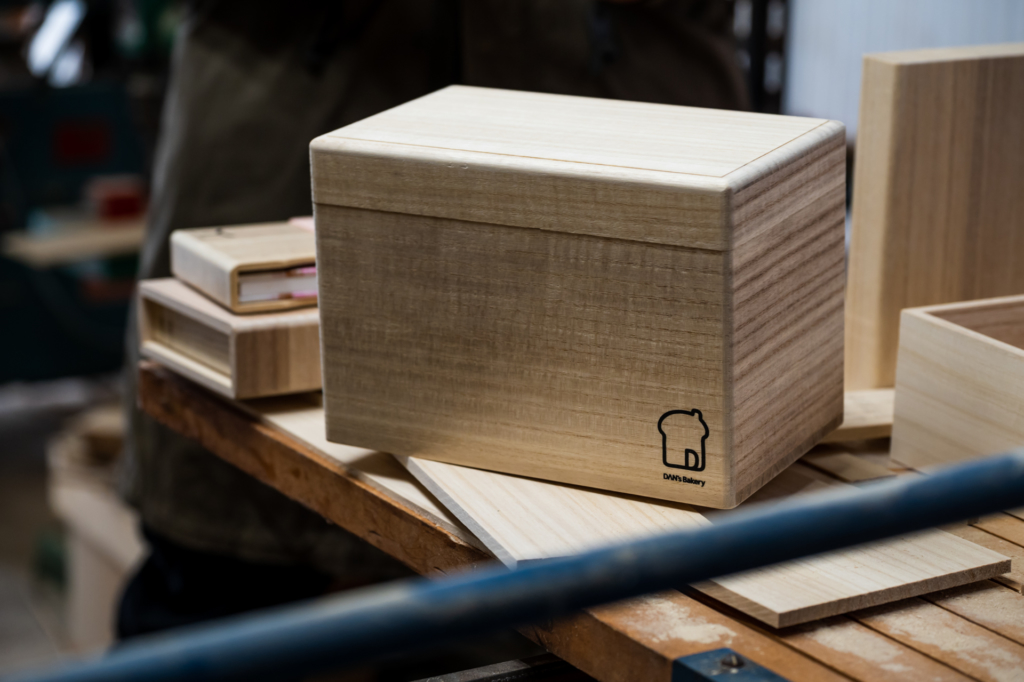
The paulownia boxes for gifts that YOSHIDA Co., Ltd. still mainly produces are basically a “wait-and-see” business that depends on the market and customer demand. In response to the belief that it would be impossible to survive under such circumstances, the company launched “KIRI STYLE” about eight years ago.
Mr. Yoshida, who creates custom-made paulownia boxes to meet any request, received a request for a rice bin. When it won a Good Design Award in 2015, he began to devise a paulownia box that was not only for gift-giving.
Also interesting is the naming of each product. For example, the paulownia box for bread is called “Yoshida Panzo,” the cutting board for bread is called “Pan no Harebutai,” the pasta storage box is called “Yoshida Pasta,” and the box for tea leaves is called “Tea Time Three Sisters,” each with a name that makes you giggle: “Reiko Yoshida,” “Yoko Yoshida,” “Midori Yoshida,” “Yoko Yoshida,” and so on. The names of the three daughters are “Reiko Yoshida,” “Yoko Yoshida,” and “Midori Yoshida,” respectively.
The paulownia wood bread case, especially designed “for bread lovers,” is said to protect bread from mold and dryness by taking advantage of paulownia’s humidity control and antibacterial properties, as well as its cushioning properties. Since it helps reduce food loss by making bread taste better and last longer, the company is not only meeting the needs of bread-loving consumers in general, but is now also selling paulownia boxes in collaboration with bakeries in Yamagata Prefecture.
In addition, the “Traveler’s KIRIBAKO Traveler’s KIRIBAKO” series includes a unique paulownia box that holds one red seal book in a box. The box is made of paulownia wood to preserve the memory of the traveler’s journey forever. The series “Shosoin of Books” won the grand prix in the crafts and sundries category of the “Nippon no Hozomon Japan Grand Prix. It is an item that has never existed before, a custom-made box to hold a single book, made at the request of a collector who was troubled by insect infestation of books.
Since we started our new paulownia boxes, we have been getting more attention and our sales have actually increased. We want to make our own original products so that we can launch our own business. However, I didn’t expect the bread box to be so well received when we made it,” says Yoshida.
Cherish the luster and characteristics of paulownia wood
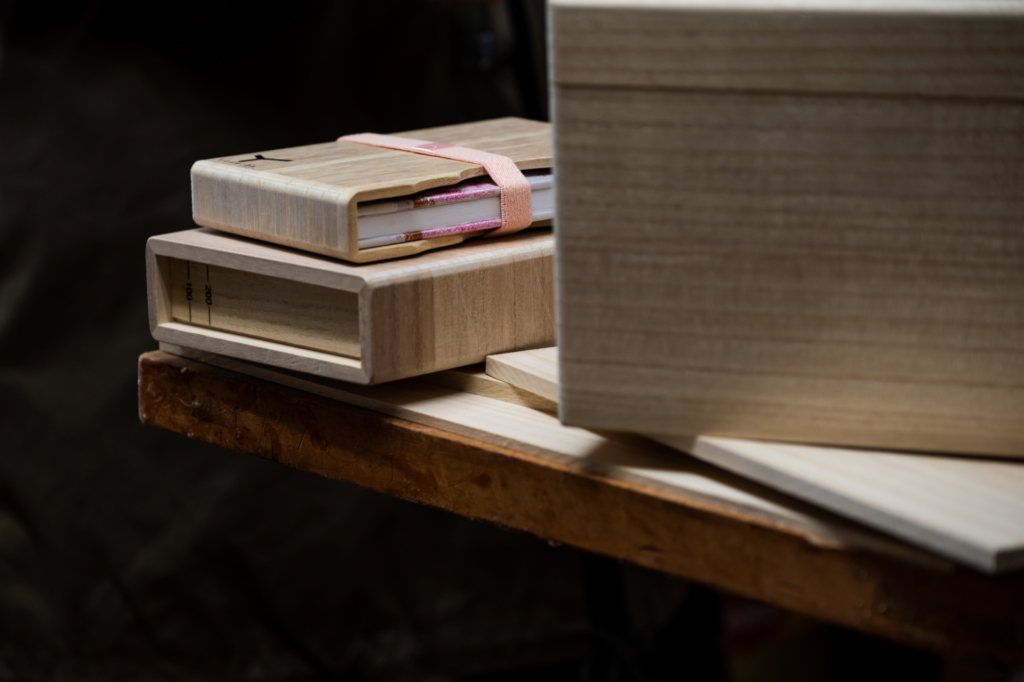
Mr. Yoshida handcrafts a wide variety of products one by one. The lumber is milled on the first floor of the company building and assembled on the second floor. The second floor is equipped with a finishing machine, which is not seen anywhere else but in the box-making shop.
The finished boxes are so tightly closed that it is difficult to tell which side can be opened. Such elaborate workmanship is the result of his long-standing skills, and it is what distinguishes him from other box makers.
We make products that take advantage of the characteristics of paulownia wood, but in other words, if we can’t show the characteristics of paulownia wood, then we won’t make it. Otherwise, there would be no point in making them from paulownia wood, and no point in making them at our company,” he says.
One new product each year as a sign of growth.
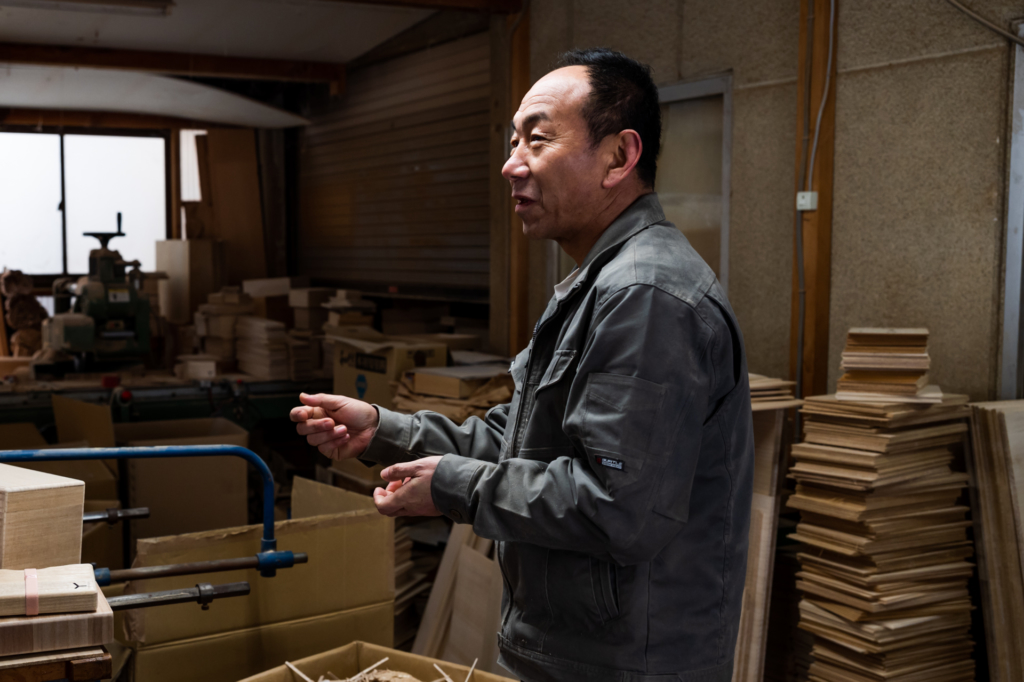
While the number of box makers is decreasing due to aging and other reasons, the demand for paulownia boxes is rising, according to Mr. Yoshida. That is why he is trying to increase product development without being defensive.
If you just focus on what is thriving, you will decline, but if you take on new challenges, you will find a way forward.
What Mr. Yoshida would like to produce in the future is “a case that can store sneakers while showing them off” and “a paulownia box for vintage jeans. This is exactly what he is proposing, integrating the functional aspects of paulownia boxes, such as their superior humidity control, into the lifestyles of young people to the fullest extent possible. Who would have ever thought of storing sneakers in a paulownia box while decorating it?
The reason for creating innovative items one after another is not only to challenge something new, but also to “prove one’s growth,” according to the company. Regardless of whether the product sells or not, he “thinks about what will sell next and what kind of product will attract people’s attention. And when that idea takes shape and is completed as a product, he feels that he has grown during the year.
It will be interesting to see what kind of creative paulownia box will be born next.



